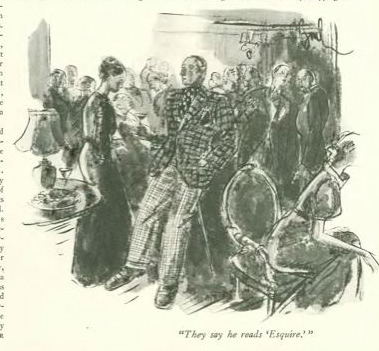oulipien
Distinguished Member
- Joined
- Dec 29, 2015
- Messages
- 1,878
- Reaction score
- 2,400
Tailored clothing isn't just all gray flannel suits with white shirts. There can be incredible nuance in material, color, pattern, etc.
Sure, there can be. But there doesn't have to be, and the point about "the man in the gray flannel suit" and "the blue serge and gray flannel and pinstripe international" isn't that back then no one thought about dress, but that the existence of a strong norm and strong rules is that it enables you to do so. You just go with the flow, follow the rules. Yeah, you can be an enthusiast, too, but you can be an enthusiast about denim, and the details you think about will likely be completely invisible to a lot of people.
I think it's just a fact about norms—in general, not just about clothing—is that one of the things they do is enable strategic thoughtlessness in things where what matters or is perceived to matter is that there's an answer, but almost any answer would be acceptable.


